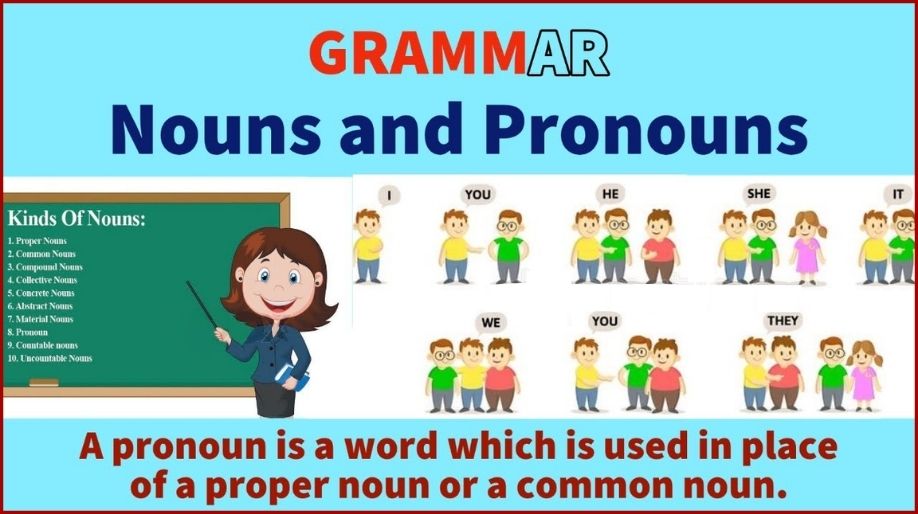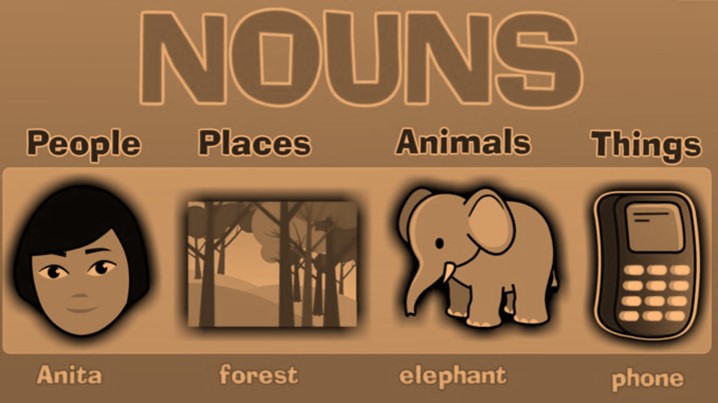What Is Noun And Pronoun : Replace Nouns By Personal Pronouns English Esl Worksheets For Distance Learning And Physical Classrooms - These words are like nouns but make our sentences clearer to read.
What Is Noun And Pronoun : Replace Nouns By Personal Pronouns English Esl Worksheets For Distance Learning And Physical Classrooms - These words are like nouns but make our sentences clearer to read.. (grammar) a type of noun that refers anaphorically to another noun or noun phrase, but which cannot ordinarily be preceded by a determiner and english requires the use of prepositional phrases and reflexive and other pronouns to communicate what the middle morpheme could alone. Which movie do you want to watch? In absence of nouns, both speech and. A proper noun is a name which refers only to a single person, place, or thing and there is no common name for it. Nouns are one of the eight parts of speech in the english language.
He is a blind mountain climber. The subjects of the first and second sentences refer to the same individual: These are personal pronouns, but there are nine different types of pronouns. Anybody, everybody, nobody, anyone, anyone, anyone, no one. Everything that we see or feel is represented by a name.

And sometimes we want to use the noun in a different way.
What are examples of pronouns? Pronouns are actually a subclass of nouns because they often replace a noun and can complete the same function in a sentence. These words are like nouns but make our sentences clearer to read. He is a blind mountain climber. Distributive adjective qualifies the noun distributive pronoun show persons or things in individual or in separate groups. Pronouns which are not known which nouns are used are called indefinite pronouns. Without pronouns, we'd constantly have to repeat nouns, and that would make our speech and writing repetitive, not to mention cumbersome. Pronouns can be subjects of the sentence (i, he, she, it, you, we, they) or express possession (his, her, your, my, mine, yours, its. Melbourne (it refers to only one particular city), steve (refers to a particular person) These words are often the subject in a sentence. Pronouns make up a small subcategory of nouns. In english, pronouns are words such as me, she, his, them, herself, each other, it, what. Pronouns refer to either a noun that has already been mentioned or to a noun that does not need to be named specifically.
In this post i am going to explain the rules of noun and pronoun and also give you a recommend course on the topic. He is a blind mountain climber. The distinguishing characteristic of pronouns is that they can be substituted for other nouns. So in this case we introduce what's called pronouns. In english, pronouns are words such as me, she, his, them, herself, each other, it, what.

The logical classifications (pronouns are a kind of noun, and possessive determiners are not pronouns) are clearly more simple and therefore easier to understand.
These pronouns are divided into different categories. Learn the pronoun definition, pronoun types and examples of pronouns with this useful study guide from online grammar and citation tool easybib. Nouns and pronouns are important parts of a language. The second is called syntax, which is a very complicated word for word order. Nouns are the objects or people of a sentence. Pronoun is a derived term of noun. * demonstrative pronoun * indefinite pronoun * intensive pronoun * interrogative pronoun * object pronoun * personal pronoun * possessive pronoun * reciprocal pronoun * reflexive pronoun * relative pronoun. Everything that we see or feel is represented by a name. Articles are the defining words. They are usually single words, but not always. In english, pronouns only take the gender of the noun they replace in the 3rd person singular form. .as subjective pronouns, objective pronouns, possessive pronouns, demonstrative pronouns, indefinite pronouns, and reflexive pronouns. I'm elizabeth o'brien, and my goal is to get you jazzed about grammar.
These are personal pronouns, but there are nine different types of pronouns. Students learn about the characteristics and needs of nouns and pronouns. A proper noun is a name which refers only to a single person, place, or thing and there is no common name for it. He, she, him, her, them, they, us, we, you, i, that, which, whom, those. Do you see how the pronoun he took the place of the noun erik weihenmayer?
The noun being replaced and the function that noun has in the sentence.
Do you see how the pronoun he took the place of the noun erik weihenmayer? Learn the pronoun definition, pronoun types and examples of pronouns with this useful study guide from online grammar and citation tool easybib. Nouns and pronouns are important parts of a language. Pronouns can replace nouns in a sentence. Melbourne (it refers to only one particular city), steve (refers to a particular person) Like all nouns, they are either people, places, objects, activities, or ideas. We sometimes use pronouns instead of a pronouns substitute for nouns when we want to avoid using the name of the object or person again in the sentence. (grammar) a type of noun that refers anaphorically to another noun or noun phrase, but which cannot ordinarily be preceded by a determiner and english requires the use of prepositional phrases and reflexive and other pronouns to communicate what the middle morpheme could alone. The distinguishing characteristic of pronouns is that they can be substituted for other nouns. For example, instead of saying. Pronouns can be subjects of the sentence (i, he, she, it, you, we, they) or express possession (his, her, your, my, mine, yours, its. What are the parts of speech and how do you use them? This page has lots of examples of each type, an explainer video, and an interactive test.